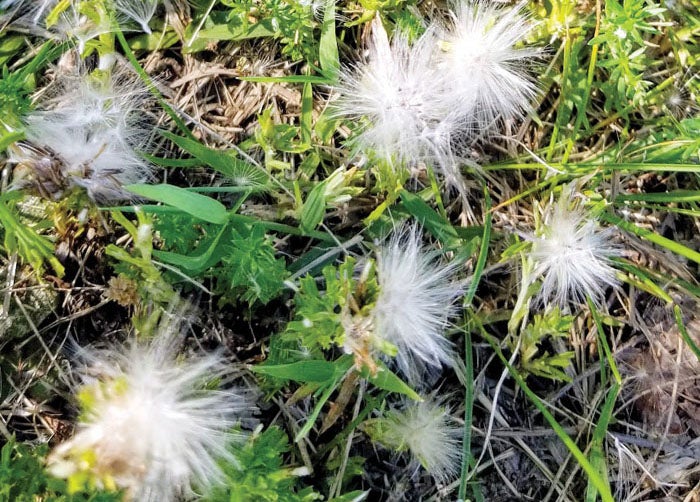Darrell Blackwelder column: Annual trampweed is difficult to control
Published 12:00 am Saturday, June 4, 2022

- Facelis or annual trampweed is a common problem in dry lawn areas.
Driving through Rowan County, I noticed a few lawns infested with a weed that looks much like a weak, spring snow. Facelis or annual trampweed is a common problem in dry lawn areas. Weak fescue lawns and hot weather make the invasion easy. The weed is a native of South America but has quickly become established in the United States as far west as Texas and Oklahoma and has now moved northeast into North Carolina.
The weed is a low-growing, broadleaf winter annual that has already produced seed for next year’s germination and will die out very soon. Trampweed produces a large amount of dandelion-like fluffy seed, covering the ground near large colonies of the plant. Masses of the feathery seed can literally cover a lawn 2-3 inches deep. Homeowners spread the seed when mowing and using leaf blowers. Trampweed germinates in the fall or winter and may grow during unseasonably warm, winter weather however, it normally remains dormant during the winter. As the temperature increases in the spring, growth resumes producing seed and dying out as temperatures increase. Control of this weed is not easy. One of the major reasons the weed is so pervasive is because fescue lawns become weak in hot weather.
The first step is to get your lawn in good shape. Facilis easily invades poorly managed lawns. Soil testing, over-seeding and proper fertilization is a must for healthy lawns, reducing weed growth. Irrigate if possible during dry weather as fescue turf needs adequate moisture.
Don’t mow too closely. Most of the lawns infested with the weed are mowed too closely. Fescue lawns should be mowed as high as possible 3 to 4 inches if possible.
Pre-emergence herbicides may be applied in September to prevent germination; however, this is usually not practical for those that over-seed weaker lawns. Post-emergence control in February and March can be obtained with repeat applications of broadleaf weed killers. More detailed information can be found at https://www.turffiles.ncsu.edu/weeds-in-turf/facelis/
Darrell Blackwelder is the retired horticulture agent and director with the North Carolina Cooperative Extension Service in Rowan County. Contact him at deblackw@ncsu.edu.




